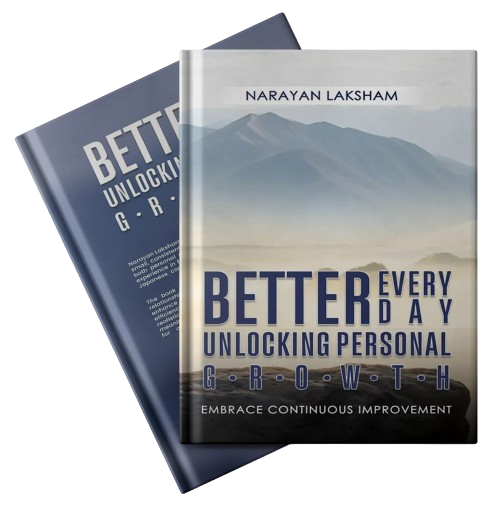
ISO 9001 is often seen as the gold standard for quality management systems, but if you’ve ever found yourself wondering about the nitty-gritty of internal audits, you’re not alone. And let’s be honest—those audits can seem a little daunting. But with the right ISO 9001 internal auditor training, you’ll not only breeze through them, but you might even start looking forward to the process (yes, really!).
The goal here is simple: to break down what you really need to know about ISO 9001 internal auditor training, and why it’s worth investing time and energy in this. Whether you’re already part of a quality management team or thinking about stepping up your game, this guide will shed light on how this training can take your quality management efforts from good to exceptional.
What Exactly is ISO 9001 Internal Auditor Training?
To start, let’s make sure we’re on the same page here. ISO 9001 is an internationally recognized standard for quality management systems (QMS). It’s all about helping organizations ensure they meet customer and stakeholder expectations while constantly improving processes.
Now, internal auditors are the detectives of the quality management world. These are the folks who assess the effectiveness of the QMS by checking whether it’s being followed properly, identifying any weak spots, and ensuring compliance with ISO 9001 requirements.
But here’s the kicker: Internal audits can be a bit like searching for a needle in a haystack. If you don’t have the right tools and training, the whole process can feel like a never-ending puzzle. That’s where ISO 9001 internal auditor training comes in. It equips you with the skills to evaluate processes, document findings, and ultimately recommend improvements—so you can help make sure everything is running smoothly and efficiently.
Why Does ISO 9001 Internal Auditor Training Matter?
You might be asking yourself, “Why should I care about internal auditor training? Aren’t audits just a once-a-year thing?” Well, that’s a common misconception. Internal audits, when done right, aren’t just a box to check—they’re an essential part of maintaining your organization’s commitment to quality.
With ISO 9001 being such a widely recognized framework, organizations need to keep up with its standards to stay competitive and compliant. Auditors ensure that the QMS is doing its job, but they can only do this if they’ve received solid training.
Let me break it down further:
- Efficiency Boost: A well-trained auditor spots inefficiencies that others might miss. This means fewer mistakes, less rework, and ultimately, less waste of time and resources.
- Continuous Improvement: One of ISO 9001’s core principles is continuous improvement. Internal auditors aren’t just looking for compliance; they’re also identifying areas where processes can improve.
- Team Collaboration: Auditors often work with different teams, helping them understand where they can improve processes to meet customer expectations. This fosters a sense of shared responsibility across departments.
In short, ISO 9001 internal auditor training ensures that your audits are more than just compliance checks—they become a tool for driving quality improvement across your organization.
So, What Does ISO 9001 Internal Auditor Training Involve?
Training programs vary, but generally, you can expect a blend of theoretical knowledge and hands-on exercises. Here’s a peek at what a typical program might look like:
- Understanding ISO 9001 Basics: Before diving into auditing, you need to have a solid grasp of ISO 9001 itself. Training usually starts with an overview of the standard’s principles and requirements—think of it as your foundation for everything that follows.
- Audit Principles and Processes: This section covers the audit cycle—planning, conducting, reporting, and following up. You’ll learn how to prepare for an audit, ask the right questions, and document findings. It’s all about being methodical and ensuring you don’t miss any critical details.
- Practical Audit Techniques: Here’s where the rubber hits the road. ISO 9001 internal auditor training often includes role-playing exercises where you get to practice auditing in a controlled environment. This hands-on experience is invaluable because it simulates real-world scenarios, teaching you how to handle tricky situations and communicate findings effectively.
- Non-Conformance Reporting and Corrective Actions: One of the most important parts of any audit is reporting findings. You’ll learn how to document non-conformities (those pesky issues that don’t meet the required standards) and recommend corrective actions to prevent them from recurring. This ensures that the QMS keeps improving rather than stagnating.
- Behavioral Aspects of Auditing: Finally, you’ll get guidance on how to approach audits with professionalism and tact. You’re not just looking for mistakes—you’re helping your organization improve. And for that, you’ll need to communicate your findings clearly and constructively.
How to Choose the Right ISO 9001 Internal Auditor Training
Not all auditor training programs are created equal. Some might skim the surface, while others will provide in-depth, hands-on learning experiences. Here’s a quick checklist to help you evaluate your options:
- Accreditation: Ensure the training is accredited by a reputable organization. Look for trainers who are recognized by bodies such as the International Register of Certificated Auditors (IRCA).
- Practical Focus: Look for programs that offer practical experience. You want to leave the training not only with knowledge but also with the confidence to carry out audits effectively.
- Support and Resources: Choose a program that offers post-training support. Whether it’s access to additional resources, mentorship, or refresher courses, continuous support will help you stay sharp.
By choosing the right training, you’re not just preparing for an audit—you’re investing in your professional development and helping your company improve quality management processes for the long haul.
The Benefits of Becoming an ISO 9001 Certified Internal Auditor
When you complete your ISO 9001 internal auditor training, you’re not just walking away with a certificate. You’re gaining skills that can significantly boost your career and your organization’s performance. Here’s why:
- Enhanced Career Opportunities
Becoming an ISO 9001-certified internal auditor opens doors. Employers value the skills and knowledge you bring to the table, and they’re likely to consider you for leadership positions in quality management.
- Increased Credibility
Having ISO 9001 training behind you adds credibility to your professional profile. It shows that you understand not only the theory behind the standard but also how to apply it in real-world situations.
- Better Job Security
The ability to improve internal processes makes you indispensable. Organizations are always looking for ways to cut waste, improve customer satisfaction, and boost efficiency. As an internal auditor, you play a crucial role in making that happen, which makes your position more secure.
- Quality-Driven Mindset
The biggest benefit might be the shift in mindset. Internal auditors are always looking at processes through a quality-driven lens. This ability to identify inefficiencies and find solutions can extend beyond audits, benefiting your work in a broader sense.
Real-World Impact of Effective ISO 9001 Audits
Now, let’s step back for a second and think about the real-world impact of an effective ISO 9001 internal audit. It’s not just about checking a few boxes. It’s about creating a culture of continuous improvement. It’s about ensuring the company doesn’t just meet regulatory requirements but consistently delivers high-quality products or services that customers can trust.
When you conduct internal audits properly, you’re helping to identify bottlenecks, streamline processes, and reduce errors. Your audit might uncover that certain steps in the production process could be more efficient, or that certain customer complaints point to a flaw in a service that needs addressing. These insights directly contribute to an organization’s ability to stay competitive in the marketplace.
So, while audits might sound like a chore, with the right training, they become a powerful tool to drive positive change and ensure that quality is always top of mind.
Conclusion: Ready to Take the Leap?
ISO 9001 internal auditor training is not just a course—it’s an investment in your skills, your career, and your company’s future. With the knowledge and tools you’ll gain, you’ll be empowered to drive continuous improvement, enhance customer satisfaction, and help your organization achieve its goals.
And let’s be honest: When you’re the one who ensures everything is running like a well-oiled machine, that’s a pretty rewarding place to be.
So, are you ready to level up your quality management game? If you’re not yet sold on the importance of ISO 9001 internal auditor training, think about how much smoother audits could go with the right preparation—and how much more you’ll be able to contribute to your organization’s long-term success.




